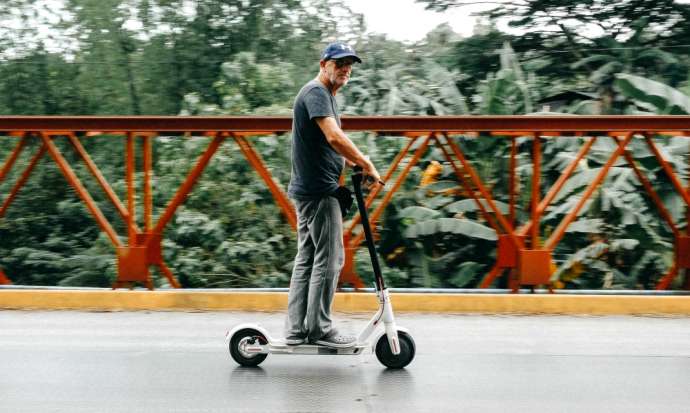STA, 23 June - The government is drafting legislative changes legalising the increasingly popular electric scooters and the testing of autonomous cars.
E-scooters are currently unregulated and exist in a grey zone, but under changes proposed by the Infrastructure Ministry their use will be allowed in pedestrian areas and on bicycle lanes.
The maximum speed will be restricted to 25 km/h, but in pedestrian areas e-scooter riders will have to keep the speed at walking pace.
Where there are no pavements or bicycle lanes, e-scooters will be allowed on the edge of roads.
In general, e-scooters will be subject to rules on bicyclists, which means they have to have lights. Helmets will be mandatory for underage riders.
A second set of rules deals with autonomous cars, whose testing will be permitted on Slovenian roads provided they are marked as autonomous vehicles.
Drivers will nevertheless have to be present in the vehicle at all times to take over if necessary, and systems must be put in place to record data in real time and hand over that data to law enforcement in the event of an accident.
All autonomous vehicles will have to be insured and their owners will have to notify the police in advance of testing.
The changes are a part of a broader reform law on traffic regulations that has been drawn up by the Infrastructure Ministry and submitted for interdepartmental consultation.
Some of the other changes involve higher fines for using mobile devices while driving, new rules on mixed areas shared by vehicles and pedestrians, and stricter rules on where lorry drivers may park.
In a change that will be welcomed by cyclists, the legislation will eliminate an unintended loophole under which bicyclists had to be completely sober; like drivers of cars, they will be allowed to have a blood alcohol content of 0.5 grams of alcohol per litre of blood.







